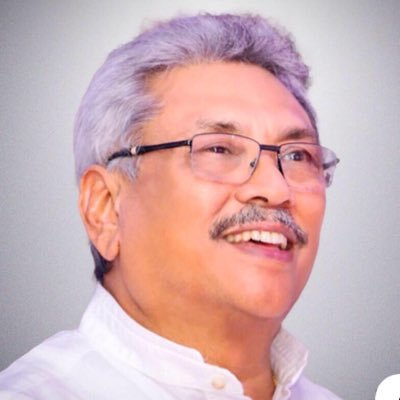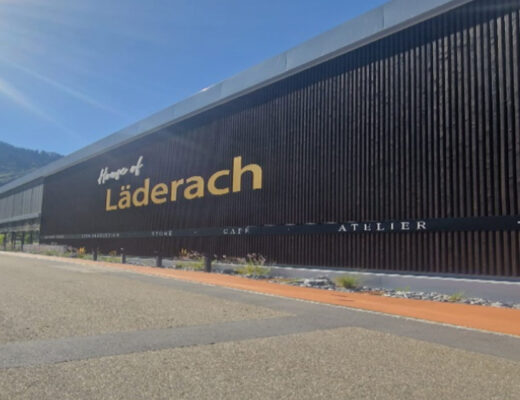FOR ANY MOTORIST FOUND CRISSCROSSING LANES ATTENDING AN ORIENTATION CLASS IS THE BEST SOLUTION RATHER THAN IMPOSING A FINE OF RS.2000 OR GOING FOR COURT ACTION
The most agonising experience of a motorist is to sit in his driving seat and start biting his nails when stuck in a congested traffic jam on Sri Lankan roads. Traffic congestion and road accidents are on the increase daily due to many who sit behind a steering wheel of a motor vehicle and do not seem to have any knowledge about the Highway Code, or blatantly ignore the traffic rules.
Driving to Colombo on a weekday during peak hours between 6 a.m. to 9 a.m. and getting back in the evening between 4:00 p.m. and 7:00 p.m. is strenuous. The stress factor can cause high blood pressure that leads to sleep apnoea and diabetes.
It is mainly due to motorcyclists on the road zig-zagging without taking any precautions on their lives, apart from others, which causes bumper to bumper traffic jams. Equally ‘tuk-tuks’ (three-wheelers) keep on creeping in and out of lanes, akin to cockroaches, and bus drivers consider roads as their domain.
Sri Lanka Police have been experimenting extensively with several novel ideas but without much success in the past. According to the Police estimated figures ‘52 buses, 300 school vans, 2628 motor cars, 1700 motorcycles and 800 ‘tuk-tuks’ enter the roads along the Jayewardenepura Road. Altogether approximately 500,000 vehicles enter and exit the City of Colombo on a working day during peak periods.’
Lane Discipline
Lane discipline became somewhat useful during the COVID-19 pandemic because only the permitted vehicles were allowed to enter roads, mainly when there was a complete lockdown. The latest operation of Lane discipline was introduced in September 2020, which seems to be a successful operation for the first time, since the Ceylon Police was established in 1866 by the Colonials, and William Robert Campbell became the Inspector General of Police.
Over the years, the number of vehicles entering Sri Lankan roads increased tremendously. The roads Colonials built for their coffee and tea transportation retained up till recently, which were narrow and highly restricted to cope with the increasing demand for vehicles.
The latest operation of lane discipline programme introduced between 14 and 16 September 2020 acted as a guide to motorists to educate them and acted as a pre-warning. In order to achieve the full benefit of this operation, many Police officers held placards at roundabouts reminding motorists to maintain lane discipline.

The traffic Police initially permitted three-wheelers and motorcycles and buses to use the bus lane. However, later, amidst protests by private bus owners and unions, bus lanes were restricted only for buses and school vans between 6 a.m. & 9 a.m. The motorcycles and three-wheelers now need to use a separate lane (where there are four lanes). The operation became effective from Monday 21 September 2020.
Confusion still exists (at the time of compiling this article) over the penalty on those who violate the ‘lane discipline.‘ First, the authorities suggested imposing a fine of Rs 2,000 for errant drivers. Later it was followed by a suggestion to make them attend a compulsory ‘orientation class’ on the following day of the offence.

The latest news reports on 4 October 2020 state that violators of lane discipline will be photographed with the registration number of the vehicle and the Police will decide whether to take them to Court or impose an on the spot fine! The Police action is still hazy and motorists are confused. The operation of ‘lane discipline’ is to be extended island wide shortly, but before it becomes effective, the Police will have to make up their mind clearly on what action to pursue!
Foreign Countries
In Switzerland, lower carbon emissions and fewer traffic jams become possible due to prioritisation at traffic lights with special lanes for bicycle use. These bus lanes make the route network possible and make public transport more attractive. Buses stop ahead of pedestrian crossings, and the system works like clockwork.

When the buses stop at designated halts, disciplined motorists stop their vehicles few yards away from the crossing so that pedestrian can cross the road, which is contrary to Sri Lankan habit. Here, of course, there were instances where pedestrians getting knocked down right on the pedestrian crossing! In the UK due to topographical structure of the country, and the city of London being an old city, has narrow roads with many ancient architectural buildings originating from the 18th Century.
Bus lanes, therefore, appear on the near side of narrow roads to overcome the traffic congestion in London. Anyone found driving or parked in a bus lane is sure to receive a ‘penalty ticket.’ Double-decker buses equipped with hidden CCTV cameras, which are capable of scanning the road on wide-angle, assist traffic wardens who monitor such offences.
New Lane discipline operation
After the trial period of traffic lane operation commenced on Monday 21 September 2020, any motorist found crisscrossing lanes attending an orientation class is the best solution rather than imposing a fine of Rs 2,000 or going for court action as suggested earlier. The whole purpose of educating the naïve motorist is to familiarise him about the dangers of erratic driving practices and to avoid serious accidents.

Those who deliberately refuse to attend such classes need to be fined heavily through a Magistrates Court rather than allowing the offender to oil the palm of a corrupt traffic Policeman and getaway! There are two sides of the same coin to this problem.
On the part of the errant driver, he is quite happy to bribe the ‘corrupt’ Police officer rather than facing Court proceedings and waste his time. On the part of the felonious Policeman what goes in mind would be: “If the bigwigs can bamboozle millions, why can’t I take a small bribe that, of course, will be spent in the evening at the liquor bar.”
The community is aware of the evidence that comes out before the Presidential Commission of Inquiry (PCol), and the Commission probing into political vitimisation committed by the previous Yahapalana regime. Senior Police officers and Government Administrative staff are getting exposed as dishonest and corrupt individuals from what comes out as evidence today.

President Gotabaya Rajapaksa is setting the best example in this regard by becoming extremely strict on discipline on negligent officials. In the eyes of some Opposition, Parliamentarians, the President’s actions are translated as autocracy, but there is a vast difference between autocracy and restructure.
The idea of deploying the military Police to monitor and control traffic is yet another innovative hint. The operation will strengthen further by utilising Sri Lanka Airforce drones over the significant roads in the build-up traffic congestions, with about 1500 traffic wardens and 200 WPCs coming into the roads to execute the new regulation on lane discipline. Using modern technology to the highest potential would not only help in terms of traffic congestions but also helps to thwart street robberies and to accelerate drug peddling exercises.
Moratuwa University
The idea of the latest operation has originated from the University of Moratuwa in liaison with the Sri Lanka Police. The University staff controls all traffic signals, as one understands. Therefore, it is advisable for the Traffic Police and University Officials to liaise further and put a stop to traffic Police switching off traffic colour light signals.

Manual operation by switching off electronic traffic lights and the Police officers taking over the responsibility makes the traffic congestion worse. Many public figures and journalists have highlighted their opinion on this particular matter through various newspaper columns, but the traffic Police seem to turn a blind eye to such suggestions.
The computer mind is much more intelligent than the human mind of a traffic Policeman. Therefore, the Moratuwa University officials should make it impossible for the traffic Police officers to switch off electronic signal systems, and adjust the timing to lesser periods – say thirty seconds on each side, so that it operates in a balanced manner. In some junctions (Borella Cotta Road and Thalawathugoda busy junction) it takes 99 seconds for the Red to turn Green.
Indeed, when all the other countries manage to have a smoother operation out of electronic traffic light systems, it makes a mockery of the international norm to cultivate such bad habits in Sri Lanka.

The Police Force is always complaining about being understaffed. It is mainly due to a large portion of Police officers are designated for VIPs’ and MPs’ Security. Indeed, Sri Lanka is not under a terrorist attack at present, like during the terrorist LTTE war! Why cannot all parliamentarians and minister grades emulate the President of this country? Minister Chamal Rajapaksa dropped a bombshell in Parliament recently in answering a question from an opposition member.
He stated that “Police officers should not carry bags of the VIPs.” Similarly, the Police officer should not be made use of by the VIPs to send them to and fro on school trips in fetching their children. The Police officers are installed mainly for VIPs’ security but they should not be made use of by VIPs’ wives to escort them on shopping sprees thereby wasting Police time and government fuel.
Introduction of a ‘point system’ on errant drivers’ driving licence is a judicious move. When the total amount of points reaches zero levels, the victim’s driving licence becomes cancelled for life. In the UK, for example, even the slightest offence such as ‘going through red light signals,’ three points are added to the motorist’s driving licence with a ‘fine’, and after nine points the driver’s licence gets banned for three years.
Picture Credit: Ceylon Today Newspaper, Askidean.com, FireFox and Google photos and Daily Mirror.






